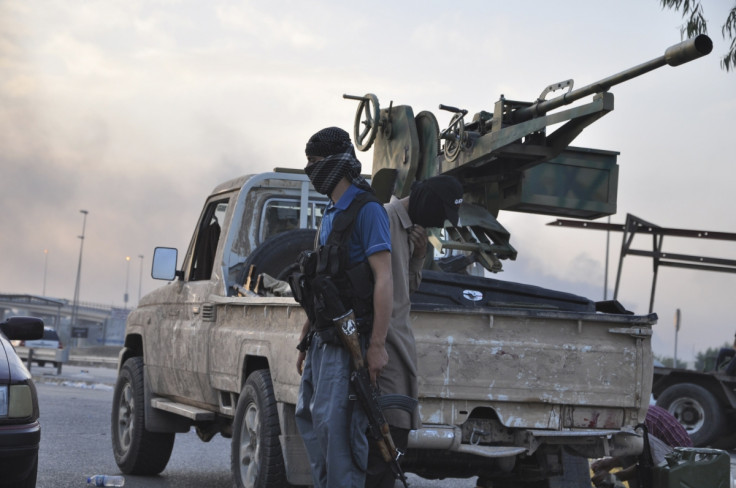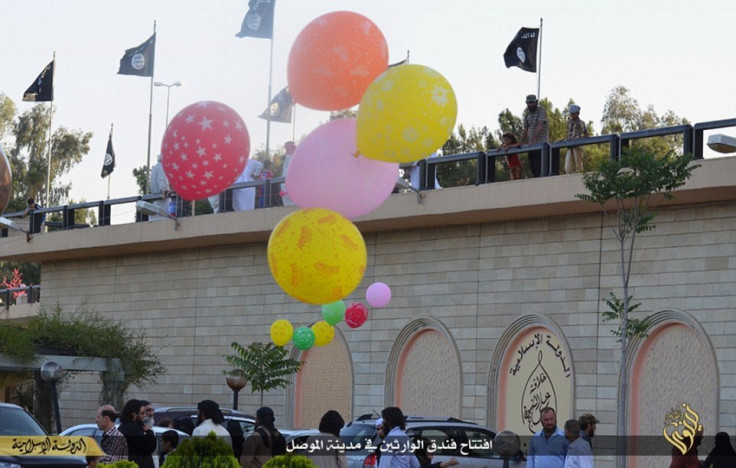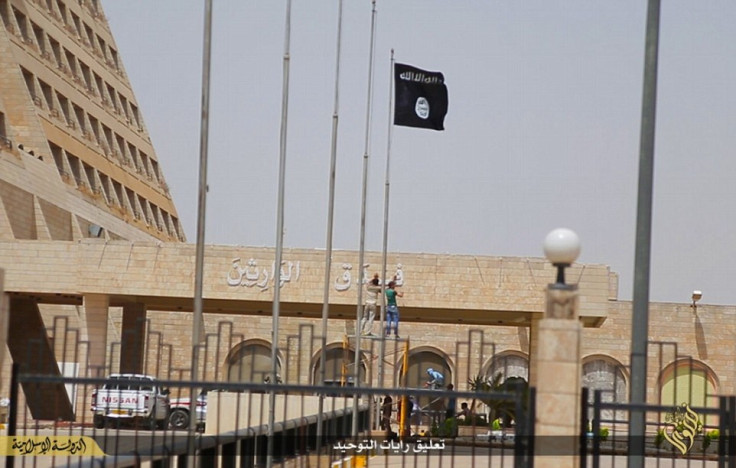Isis: A year since Mosul fell Islamic State's hold on Iraq's second city is stronger than ever

On 6 June 2014, the Islamist militia that was to become Islamic State (Isis) swept out of the desert that straddled Iraq's border with Syria and quickly overpowered the checkpoints outside Mosul.
Since IS seized Iraq's second city, the fanatical Islamist group has more than made its brutal presence known, smashing ancient relics, throwing homosexuals from the roofs of buildings, blowing up churches, banning football and executing hundreds of Iraqis as it poses its strict, puritanical and warped version of Islam on Mosul's 600,000 inhabitants.
But while the stories that have leaked out of the city over the past 12 months have offered a unique view of life in the Islamic caliphate, the fall of Mosul was a crushing strategic blow to the Iraqi army and its allies. It was the final straw for the government of Nour al-Maliki, the divisive former prime minister who was replaced in August 2014 by Haider al-Abadi.
Mosul was a multicultural, multi-ethnic city but IS are changing the demographic, not just in multicultural sense but from Muslims to hard-core pro-IS Muslims
IS was able to take Mosul in just five days after many of the Iraqi army units stationed in the city simply turned and fled in the face of the Islamist advance. The group wasted no time in looting the city's banks and co-opting the military hardware the army left behind. It was recently revealed that 2,300 Humvees were left behind and are now in the hands of the jihadi group.
Those weapons have bolstered IS's forces elsewhere in Iraq and Syria, where the militants now control some 50% of the country, and have been used to fight Kurdish forces on the Mosul border as well as Iraqi army and Shia militia fighters in Ramadi and the south. The fall of Ramadi in May has suggested any campaign to retake Mosul is a long way off.
Soon after taking the city, IS bedded down for the long haul, fortifying the city with multiple trenches inside it, limiting internet and mobile phone communications and beginning an intense propaganda machine that constantly reminded residents that the Shia government had abandoned them. A year on and Mosul has become a stronghold.

"Everyone was shocked at how well IS were able to consolidate and the fortification measures that they took," said Aaron Balshan, an analyst at the Levantine Group consultancy firm.
The purges that have taken place in Mosul and the surrounding areas have been instrumental in establishing the horror that is now associated with IS across the world. Christians, Yazidis, Kurds and Turkmen have been persecuted and murdered, while their homes – as well as those of moderate, anti-IS Muslims – were given to radical foreign jihadis.
"Mosul was a multicultural, multi-ethnic city [but] IS are changing the demographic, not just in multicultural sense but from Muslims to hard-core pro-IS Muslims," said Balshan.
Everyone was shocked at how well IS were able to consolidate and the fortification measures that they took
Despite the increasingly slick propaganda, life in Mosul a year on is increasingly tough, with reports of massive price rises for essential goods such as cooking oil.
As the group has lost control of its oil fields, its income has plummeted and IS has been forced to diversify into smuggling of both antiquities and cigarettes – ironic, perhaps, since the group has made a show of destroying the former and publicly banning the latter.
In a recent interview with IBTimes UK, analyst Aymenn Al-Tamimi – who has obtained, translated and published reams of IS rules and regulations that have leaked out of Mosul since they captured the city in 2014 – said IS was rapidly losing any support it may have had in the early days of the Sunni insurgency.
This was due to an increasing reliance on taxation of the native population, which has come at a time when services are in heavy decline in all areas that IS controls. Al-Tamimi said: "It cannot be denied objectively that life is much worse now than before IS: electricity has to be generated privately, fuel prices are much higher, there is a shortage of medical supplies, etc. Many of the population will have undoubtedly perceived this decline in quality of life."

But Balshan points out that while April saw an increase in resistance against IS from within Mosul – with reports that at least five IS figures were murdered by the Free Officers Movement, a coalition of former Baathist officers opposed to the terrorist group, including a military attache to Abu Bakr al-Baghdadi – the fall of Ramadi will undoubtedly have taken the wind out of the nascent resistance movement's sails.
Plenty will now fear that both in terms of ability and intention, Baghdad is a long way from being ready to mount a serious offensive on Mosul. Its residents may be growing tired of IS and its rule but they could well be stuck with them for a good while longer.
Who really is going to fight and die for Mosul? A bunch of Shia from Basra? I doubt it
As for the future, it is difficult to see the liberation of Mosul coming any time soon given events in Anbar. The Kurds – who have been stationed on the Mosul outskirts for almost a year – will not want to take the city alone and the Iraqi army is far from ready, as demonstrated by its abject failure to protect Ramadi and Fallujah.
Meanwhile, Iran and its militias will have little interest in liberating a city well outside its sphere of influence and the minority of Sunni fighters outside of Mosul are badly trained and poorly funded. The US and Iraq have both been keen to pass off the loss of Ramadi as a hiccup in the campaign against IS but in reality, it has forced a total rethink of the strategy in Iraq.
Michael Stephens, head of Royal United Services Institute for Defence and Security Studies, said: "Who really is going to fight and die for Mosul? A bunch of Shia from Basra? I doubt it.
"If they want Mosul back then they are going to need to get the people from that area to go fight for it. I don't see that happening. I would guess that in a year's time, it would be unlikely that the Iraqi state will have it back."
© Copyright IBTimes 2024. All rights reserved.







